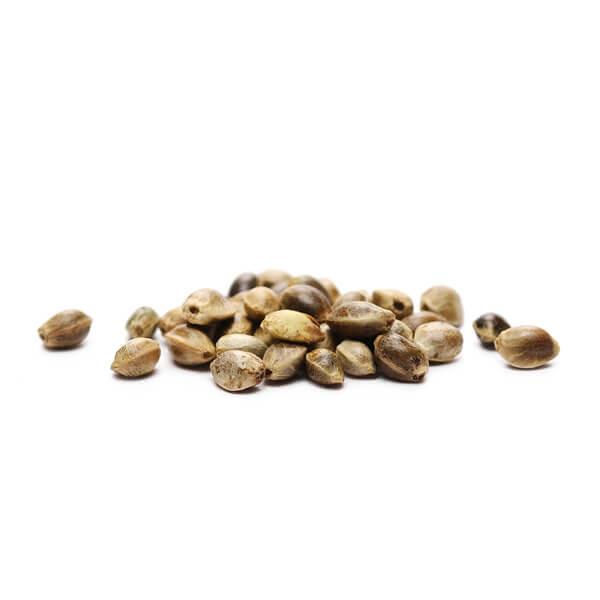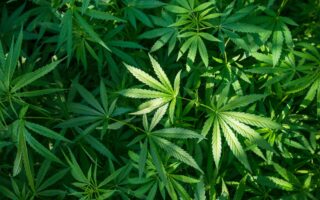In the vast and verdant landscape of plant cultivation, few seeds carry as much intrigue and potential as cannabis seeds. These tiny capsules of life are more than mere carriers of genetic information; they are the genesis of a complex and multifaceted industry that has captured the attention of botanists, entrepreneurs, and casual gardeners alike. From the ancient medicinal uses that date back thousands of years to the modern-day innovations in breeding and cultivation techniques, cannabis seeds embody a rich heritage intertwined with cultural significance and evolving legal frameworks. As the world increasingly embraces the myriad applications of cannabis, understanding the nuances of these seeds becomes paramount for anyone looking to explore this fascinating domain. Join us as we delve into the essential aspects of cannabis seeds, from their diverse varieties and cultivation tips to their pivotal role in the burgeoning cannabis industry.
Table of Contents
- Understanding the Varieties of Cannabis Seeds
- Cultivation Tips for Optimal Growth
- Selecting the Right Seeds for Your Desired Strain
- Navigating Legal Considerations in Cannabis Seed Procurement
- Q&A
- Closing Remarks
Understanding the Varieties of Cannabis Seeds
When exploring cannabis seeds, it’s essential to understand the distinct categories available, each with unique characteristics and purposes. Cannabis seeds can be broadly classified into three main types: regular, feminized, and auto-flowering. Each type serves different cultivation needs and experiences:
- Regular Seeds: These seeds produce both male and female plants, making them suitable for breeders looking to create new strains. However, they require careful selection to ensure desired traits.
- Feminized Seeds: Engineered to produce only female plants, these seeds greatly simplify the cultivation process. Growers prefer them for reliable buds, as only female plants produce cannabis flowers.
- Auto-flowering Seeds: Unique for their ability to flower automatically after a specific growth period, these seeds are ideal for novice growers or those with limited space. They typically offer faster harvests.
The choice of seed type can greatly influence the cultivation experience and final yield. Here’s a quick comparison to help guide your selection:
| Seed Type | Yield Potential | Growing Difficulty |
|---|---|---|
| Regular | Moderate to High | Intermediate |
| Feminized | High | Easy |
| Auto-flowering | Moderate | Very Easy |
Understanding these differences allows growers to choose the best seeds for their individual needs, ensuring a successful and enjoyable growing experience.
Cultivation Tips for Optimal Growth
To ensure your cannabis seeds thrive, it’s essential to start with the right conditions. Light, temperature, and humidity play significant roles in seed germination and plant health. Aim for a light cycle of about 18 hours of light followed by 6 hours of darkness for the vegetative stage. Keep your growing environment around 70-80°F (21-27°C) with humidity levels of 40-60% for optimal growth. Seedlings are sensitive, so maintaining consistent conditions will prevent stress and promote strong root development.
Choosing the right medium can also significantly impact growth rates. Here are some recommended growing mediums:
| Medium | Benefits |
| Soil | Natural nutrients, easy for beginners |
| Coco Coir | Good water retention, excellent drainage |
| Hydroponics | Faster nutrient uptake, increased growth rates |
Regularly monitor your plants for signs of nutrient deficiencies or stress and adjust your feeding schedule accordingly. Using organic fertilizers can enhance the flavor profile of your cannabis, while proper watering techniques prevent root rot. Be attentive and patient, as fostering ideal conditions will lead to a bountiful harvest.
Selecting the Right Seeds for Your Desired Strain
Choosing the right seeds is crucial for achieving the specific cannabis strain that meets your needs and preferences. Think about factors such as desired effects, growth conditions, and cultivation experience before making a decision. Whether you’re aiming for a relaxing Indica to unwind after a long day or a stimulating Sativa for creative pursuits, understanding the distinctions between these types can guide your selection process. Here are some key considerations to ponder:
- Genetic Stability: Look for reputable seed banks that offer genetically stable strains to ensure consistency.
- THC/CBD Ratio: Decide if you want higher THC for psychoactive effects or CBD for medicinal value.
- Growing Environment: Determine if you will grow indoors or outdoors, as this affects the strain’s adaptability.
It’s also helpful to familiarize yourself with the seed types available, including feminized seeds, regular seeds, and auto-flowering seeds. Below is a simple table outlining the various seed types and their characteristics:
| Seed Type | Characteristics | Best For |
|---|---|---|
| Feminized | Produces only female plants, maximizing bud production. | Beginner and indoor growers |
| Regular | Contains both male and female seeds, great for breeding. | Experienced growers |
| Auto-flowering | Starts flowering automatically after a set period, regardless of light cycle. | Growers with limited space/time |
By taking these factors into account and selecting the right seed type, you can cultivate a strain that aligns with your unique preferences and growing conditions. Remember, your journey begins with a thoughtful choice.
Navigating Legal Considerations in Cannabis Seed Procurement
The landscape of cannabis seed procurement is intertwined with a complex web of legal considerations that varies greatly by jurisdiction. As you embark on acquiring seeds, being well-informed about local laws is essential. Here are some key aspects to consider:
- Legal Status: Understanding whether cannabis cultivation is legalized for medical, recreational, or industrial purposes in your region.
- Source Legitimacy: Ensure you are purchasing seeds from reputable suppliers who comply with regional regulations.
- Quantities Allowed: Be aware of the specific limits on the number of seeds you can possess or cultivate without encountering legal issues.
Additionally, engaging with local cannabis communities or forums can provide valuable insights into navigating regulatory nuances. Some jurisdictions may even offer resources through government websites or agricultural departments. For a clearer picture, consider the following table that summarizes various cannabis cultivation laws across selected states:
| State | Legal for Personal Use | Seed Purchase Regulations |
|---|---|---|
| California | Yes | Permissible from licensed sellers |
| Texas | No | Restricted |
| Colorado | Yes | Permissible from licensed sellers |
| Florida | Yes (Medical Only) | Permissible for qualified patients |
Ultimately, navigating the complexities of cannabis seed procurement will require diligence and a proactive approach to understanding the laws that govern your usage. By staying informed and connected with compliant sources, you can mitigate risks and ensure a smoother path toward successful cultivation.
Q&A
Q&A on Cannabis Seeds: Everything You Need to Know
Q1: What are cannabis seeds, and why are they important?
A1: Cannabis seeds are the reproductive elements of the cannabis plant, containing the genetic blueprint necessary for growth. They are vital for cultivating new plants and come in a myriad of strains and varieties, each offering unique characteristics like flavor, potency, and growth patterns.
Q2: How do I choose the right cannabis seeds for my needs?
A2: Choosing the right seeds begins with understanding your goals. Are you looking for a high-THC strain for recreational use, a CBD-rich variety for medicinal purposes, or perhaps a balance of both? Research the different strains available, consider the growing conditions (indoor vs. outdoor), and check for seed bank reliability for quality assurance.
Q3: What is the difference between regular, feminized, and auto-flowering seeds?
A3: Regular seeds can produce either male or female plants, which can be important for breeding but may require growers to identify and remove male plants in a garden. Feminized seeds are bred to produce only female plants, ensuring you grow the buds you’re after. Auto-flowering seeds automatically transition from the vegetative to flowering stage based on age rather than light cycles, making them ideal for beginners or those seeking a quicker harvest.
Q4: Can I legally grow cannabis seeds?
A4: The legality of growing cannabis seeds varies by location. In some regions, home cultivation is permitted under specific regulations, while in others, it remains illegal. It’s important to research local laws and regulations regarding cannabis to avoid legal issues.
Q5: How should I store cannabis seeds for optimal longevity?
A5: Proper storage can significantly extend the lifespan of cannabis seeds. Keep them in a cool, dark, and dry place, ideally in an airtight container. Avoid exposure to moisture and temperature fluctuations. Some growers even store seeds in the refrigerator for added protection, as long as they remain in a sealed jar to keep humidity at bay.
Q6: What common issues should I look out for when germinating cannabis seeds?
A6: Common issues include seed dormancy, malfunctioning germination methods, and improper environmental conditions. Ensure you’re using high-quality seeds, and consider methods like soaking or using paper towels to encourage germination. It’s essential to maintain optimal temperatures and humidity while minimizing disturbances during this critical stage.
Q7: Can I use cannabis seeds for anything other than growing plants?
A7: Absolutely! Cannabis seeds are packed with nutritional value and can be consumed raw, roasted, or ground into powder. They are rich in protein, healthy fats, and various vitamins and minerals, making them an excellent addition to smoothies, salads, or baked goods. Additionally, hemp oil derived from seeds is popular in the culinary world for its flavor and health benefits.
Q8: What resources can I explore to learn more about cannabis seeds?
A8: There are plenty of resources available, ranging from online forums and gardening websites to books dedicated to cannabis cultivation. Additionally, local grow shops often provide valuable advice and may host workshops. Engaging with the cannabis community, whether through social media or local events, can also enhance your understanding and skills.
Q9: What are some of the future trends in cannabis seed cultivation?
A9: As the cannabis industry continues to evolve, trends such as genetic customization, sustainability practices, and organic cultivation will likely gain traction. Innovations in breeding technology may lead to new strains that offer enhanced therapeutic benefits or greater resilience to pests and diseases, paving the way for a versatile and sustainable future in cannabis cultivation.
With this Q&A, you’re now equipped with essential knowledge about cannabis seeds. Whether you’re a novice grower or a seasoned expert, understanding the nuances of cannabis seeds can enhance your cultivation journey. Happy growing!
Closing Remarks
As we conclude our exploration of cannabis seeds, it becomes clear that these tiny powerhouses hold more than just the potential for growth. They symbolize a new era of understanding and appreciation for a plant that has intrigued humanity for centuries. From the science of genetics to the art of cultivation, cannabis seeds invite us to engage in a journey that intertwines nature, knowledge, and innovation. Whether you’re a seasoned grower or a curious novice, the world of cannabis seeds invites you to dig deeper, experiment, and cultivate your own unique experience. As we nurture the future of this remarkable plant, let us embrace the possibilities that lie within these seeds and sow the foundations for a more informed and open conversation surrounding cannabis. After all, every great garden begins with a single seed—what story will yours tell?



